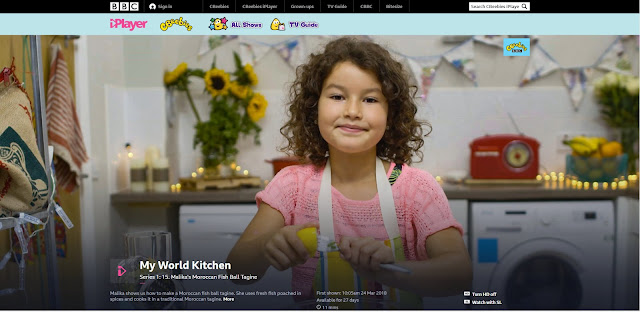Mouchine Camel and the Street Language School, Essaouira, Morocco
Mouchine (far left) and his teaching assistants Malika and Ameenah (far right!)
THIS summer we were back in our Moroccan hometown of Essaouira and at the start of our trip we were delighted to meet the hugely charismatic and inspirational Mouchine Camel. Mouchine is a teacher in the region of Essaouria and in his free time he runs an innovative street class which offers free language classes to children, young adults and tourists in Essaouira. As tourism is one of the main industries in Essaouira it is crucial for the young people to access language classes to allow them to access employment in the tourist trade.
My daughters Malika and Ameenah helped assist in the classes and got to know many of the young adults and new emerging communities in Essaouira, such as the Senagalese Community, who have settled in Essaouira to work in tourism. I hope that this experience helped my daughters to recognise and have a sense of their own privellege as second generation, dual heritage Moroccans!
One windy day over a pot of Moroccan Mint tea we sat down to talk to Mouchine about the street class and his hopes for the future of education in Morocco.
I started this project in Essaouira last July as i saw the hunger in children to learn languages and the barrier of cost, which was preventing so many children to access language learning.
In my day job I am a teacher for government schools in Morocco and I have been placed in various schools in the Essaouira region. Becoming a teacher was a childhood dream of mine; in Morocco every child has a childhood dream to be a teacher. However teaching in the street as we are doing now is very weird in Moroco! I wanted to make a difference and I feel that in Morocco the street is often a place where people gather and learn together.
We offer language classes five days per week adults and the location is the street. Five days per week I offer classes in Darija [Moroccan Arabic] for tourists and ex pats in Essaouira. I also offer morning classes in English for Moroccan children and they love these classes! Tourism is a major part of the economy in Essaouira so it is very useful for the children to learn english.
In the evenings young adults attend a nightly language class which is predominantly english class although depending on our cohort of volunteers we also offer Spanish class. One night per week we offer a street library where we encourage a love of literature and exchange of library books which are predominantly English Language.
I teach three hours per day and run this when I am on holiday from my government school job. When I am teaching in the countryside I keep the project going and run it with a network of volunteers.
On average 200 children, young adults and tourists access the classes per week. I am really proud that we offer these for free as I really believe education is so so transformative for our children in Morocco.
When did you qualify as a teacher?
Actually when i graduated from high school I went to university and got a bachelors degree in chemistry. I started working for a private school teaching chemistry and physics. I then joined a private school and I just got my teaching diploma last year.
I understand from many years of coming to Morocco that life for teachers in Morocco is very difficult. I also understand that it is difficult to talk openly about this because of fear over consequences of speaking out in Morocco. Do you want to say anything about this?
I think that teachers are the most important people we have in society. If we have good teachers they will guide the next generation well with integrity and wisdom. What is happening now in Morocco is that the conditions are getting worse for teachers year in, year out. In the countryside the situation for teachers is very difficult and we can face teaching with no electricty or water. The biggest problem I feel that teachers face is a lack of dignity.
Do you want to talk about your plans to support children in schools in the countryside. What do you want to do and what are the current barriers?
There is a big difference in the quality of education in the rural and urban areas. As everyone knows the urban children get a better quality of education and better opportunities. In the countryside chidren are turning up hungry, often they are walking many kilometres to get to school and often barefoot. They often turn up hungry. I feel I need to fight for the children in the countryside to have the right to a good education.
As I said before the children in the countryside suffer a lot in terms of material deprivation, with no water, electricity and health care. I have just been posted to a school in the deep heart of the Essaouria region; it is four hours by bus and then another treachorous journey down a dangerous road. The only way to get there is in a kidnapper taxi, which is a funny term we call these little taxis in Morocco. It is a real challenge to work with the children in the countryside as they really need access to a quality education. Girls in the countryside often finish school early to become child brides, so a big part of the work as a teacher in the countryside is to encourage their parents to keep them in school. Another barrier to the children's education is lack of parental support; often the parents are functionally illiterate and would rather the children were at home with them helping them on the farm. I will offer classes at weekends to support the parents with their own education and support them to understand the importance of education. Despite some minor governmental support for rural families, it has not gone far enough to address the structural barriers in the countryside.
I understand that you have worked in the past in partnership with Project Soar
who support Moroccan girls to remain in education. Do you want to talk about this?
Yes, I worked in partnership with Project Soar last summer. Project Soar organised girls to come to Essaouira from all over Morocco. They were involved in painting areas all over the city. It was really beautiful and the girls really enjoyed the opportunity to travel, to be together and to give back to the children of Essaouria. Michelle Obama featured Project Soar in her We Will Rise documentary, which documents the Obama mission to see girls around the world educated, so it was a real pleasure to work in partnership with such a great organisation in Morocco.
With your help, we can make this project reach further, reach more people and touch more lives positively because we believe in what Nelson Mandela once said, “Education is the most powerful weapon which you can use to change the world."
If you would like to support Mouhcine to bring supplies to children and families in the countryside such as warm clothing, teaching supplies for parenting classes and supplies for his street language classes in Essaouira, please click on the below link for his Just Giving page.'
https://www.justgiving.com/crowdfunding/english-street-class
Mouchine (far right) at his school in the Moroccan countryside in the Essaouira region
To follow the school on Facebook click here,

Welcome to the fourth annual Middle Eastern and North African Heritage Month blog hop from Multicultural Kid Blogs! Visit all the participating blogs below for great resources on teaching children about the heritage of this region. Don't miss our series from last year, 2016, and 2015!
You can also find even more resources on our North Africa and the Middle East Pinterest board:












